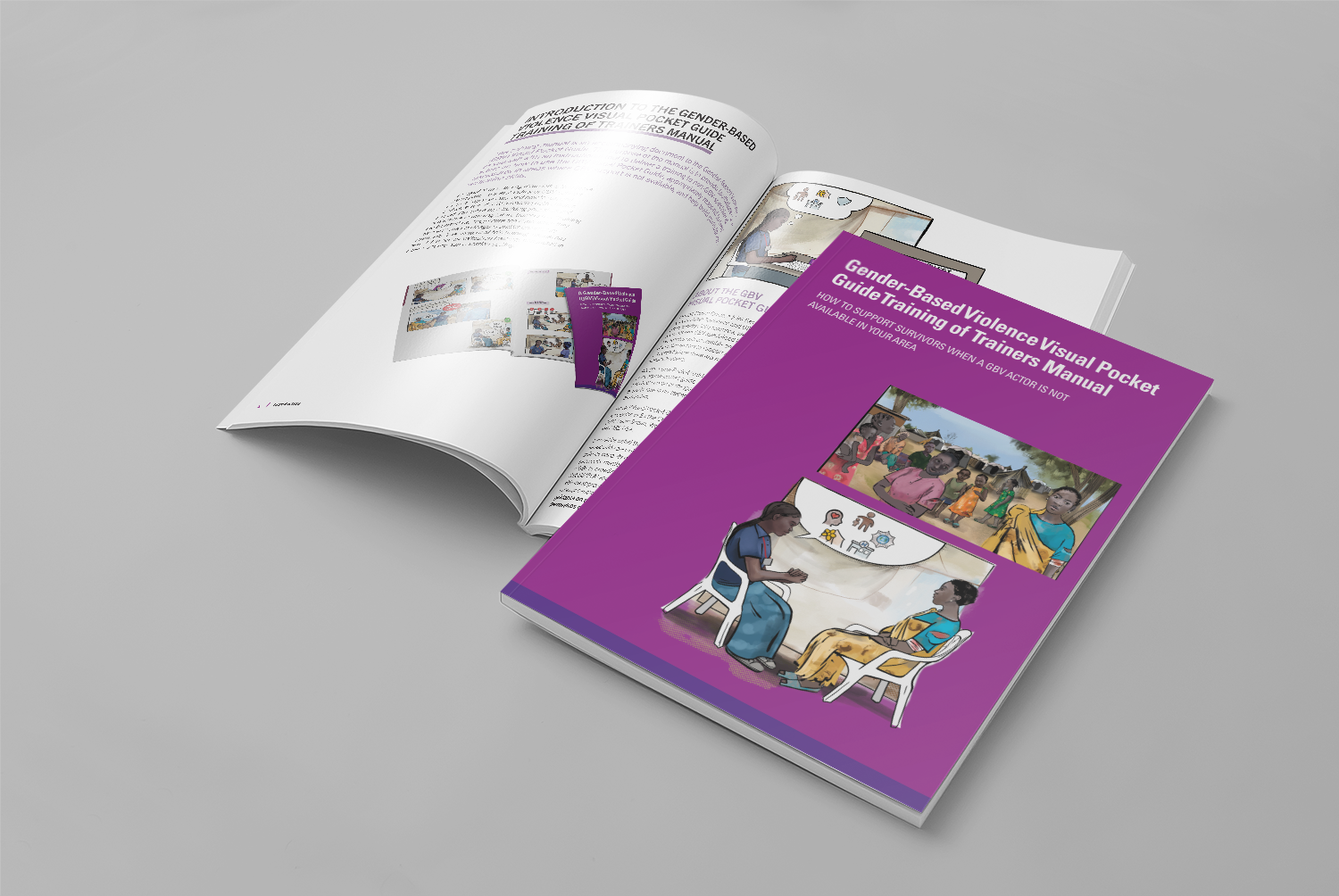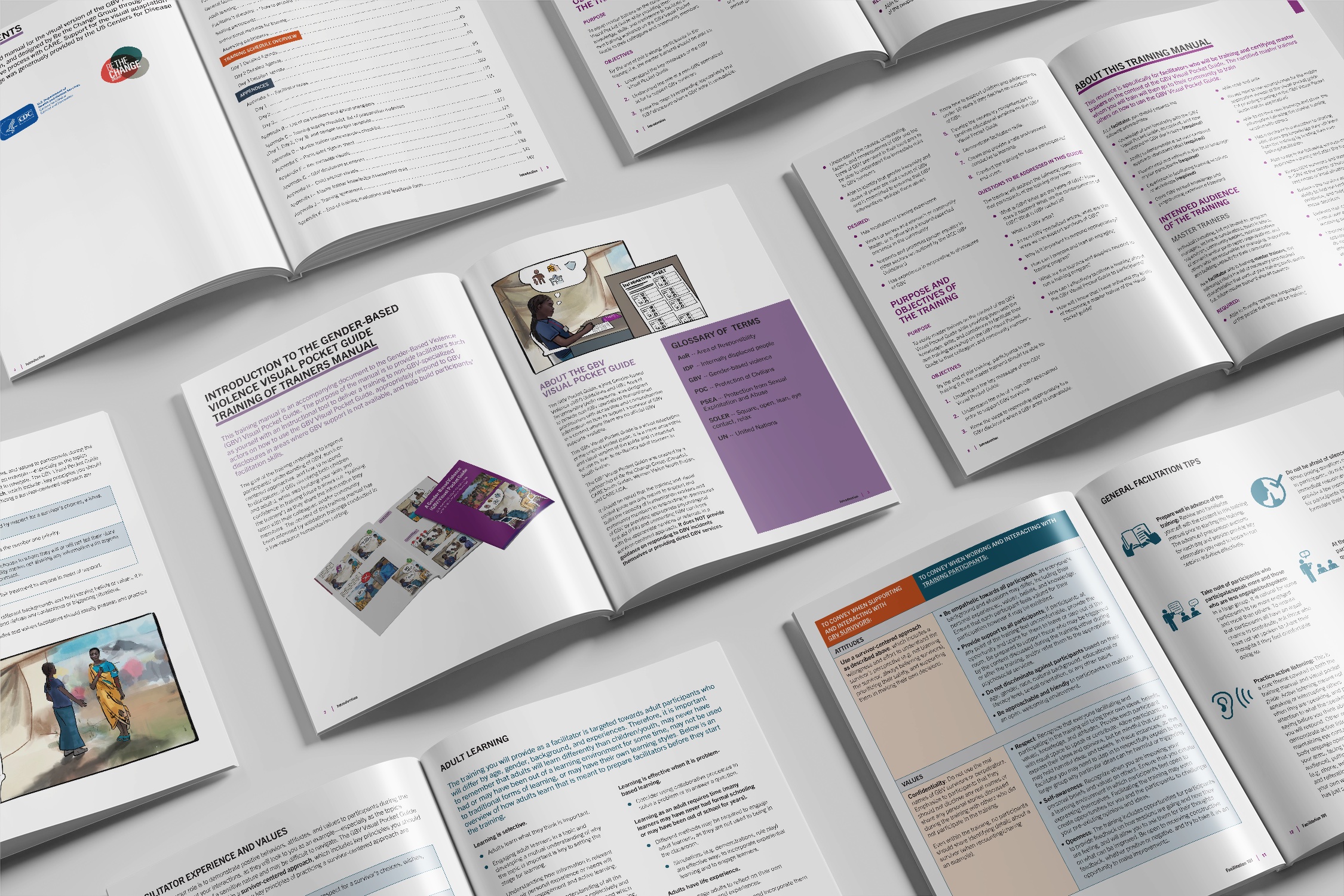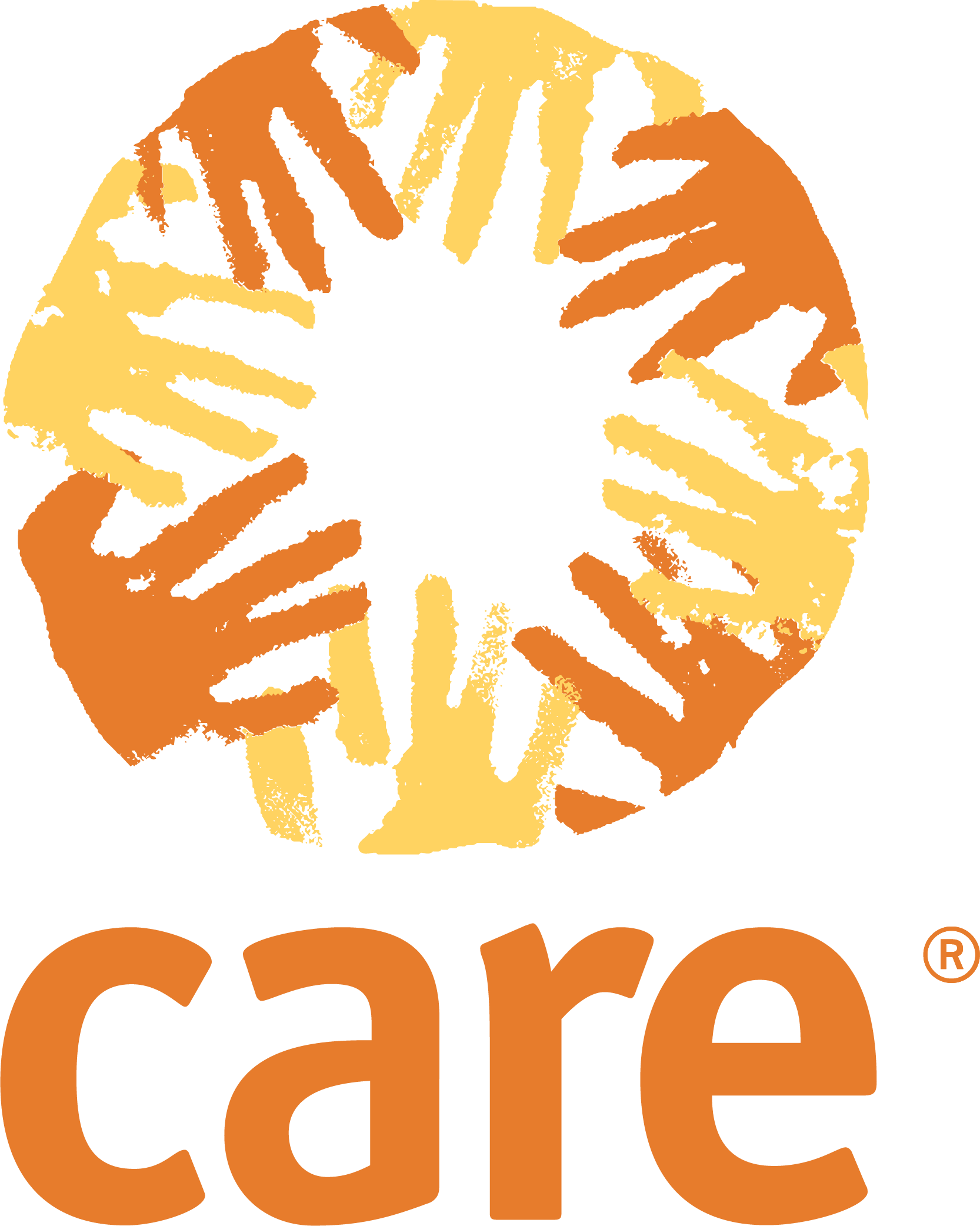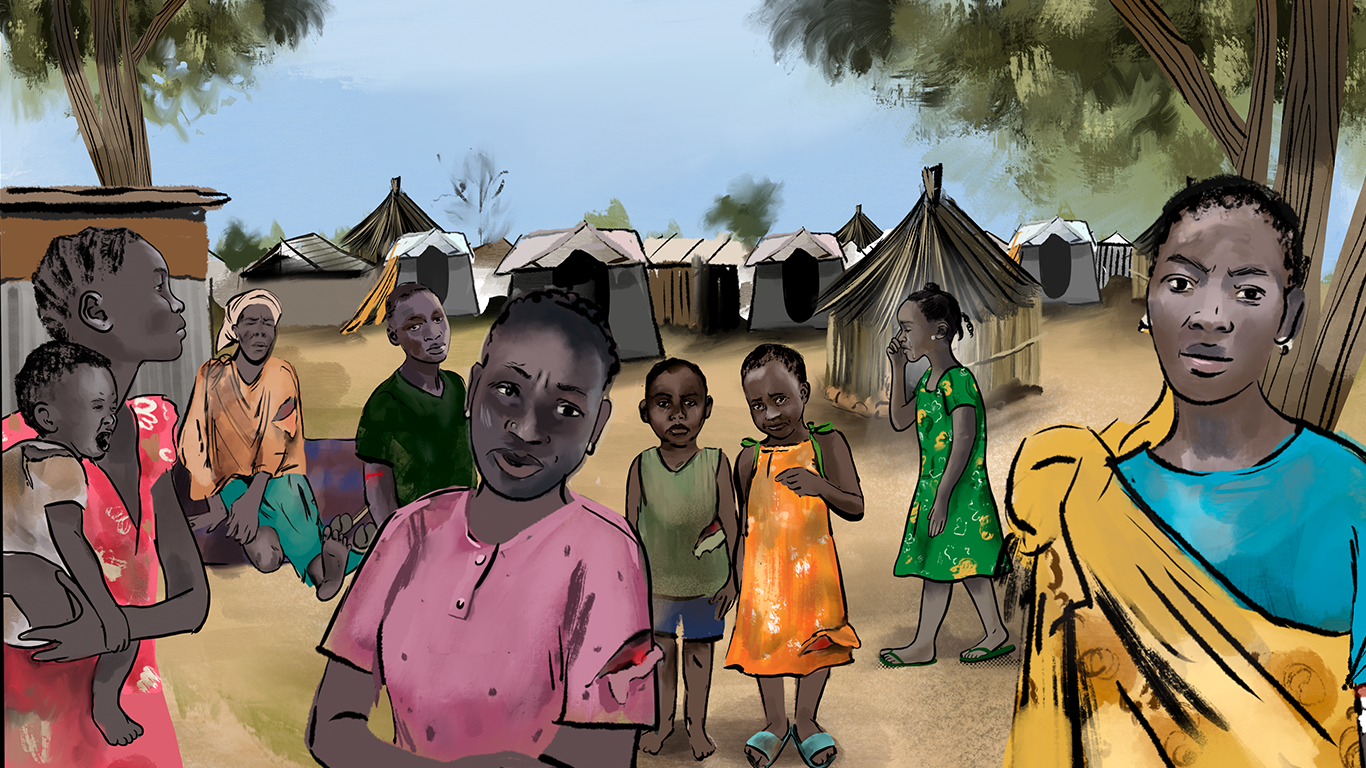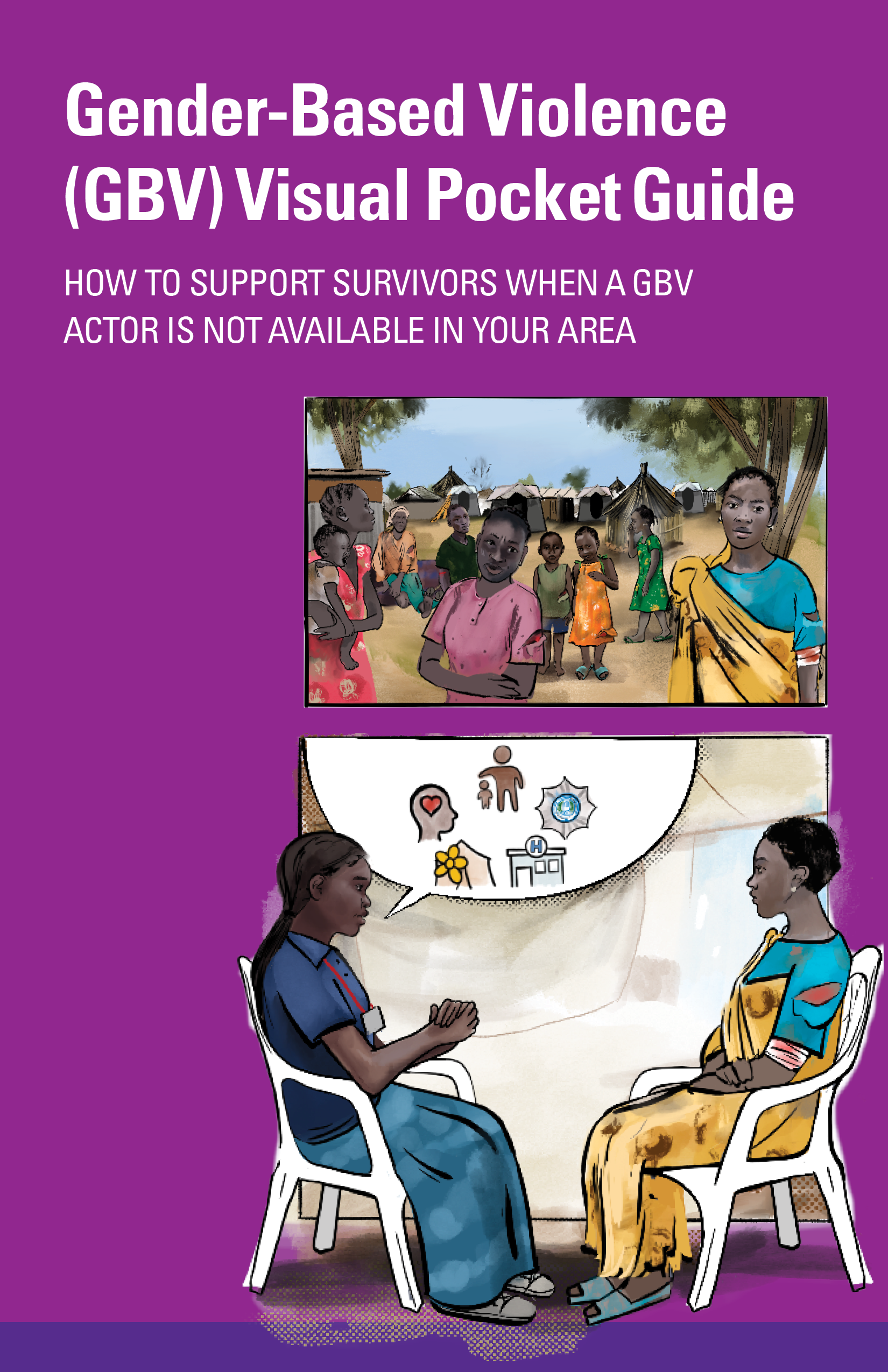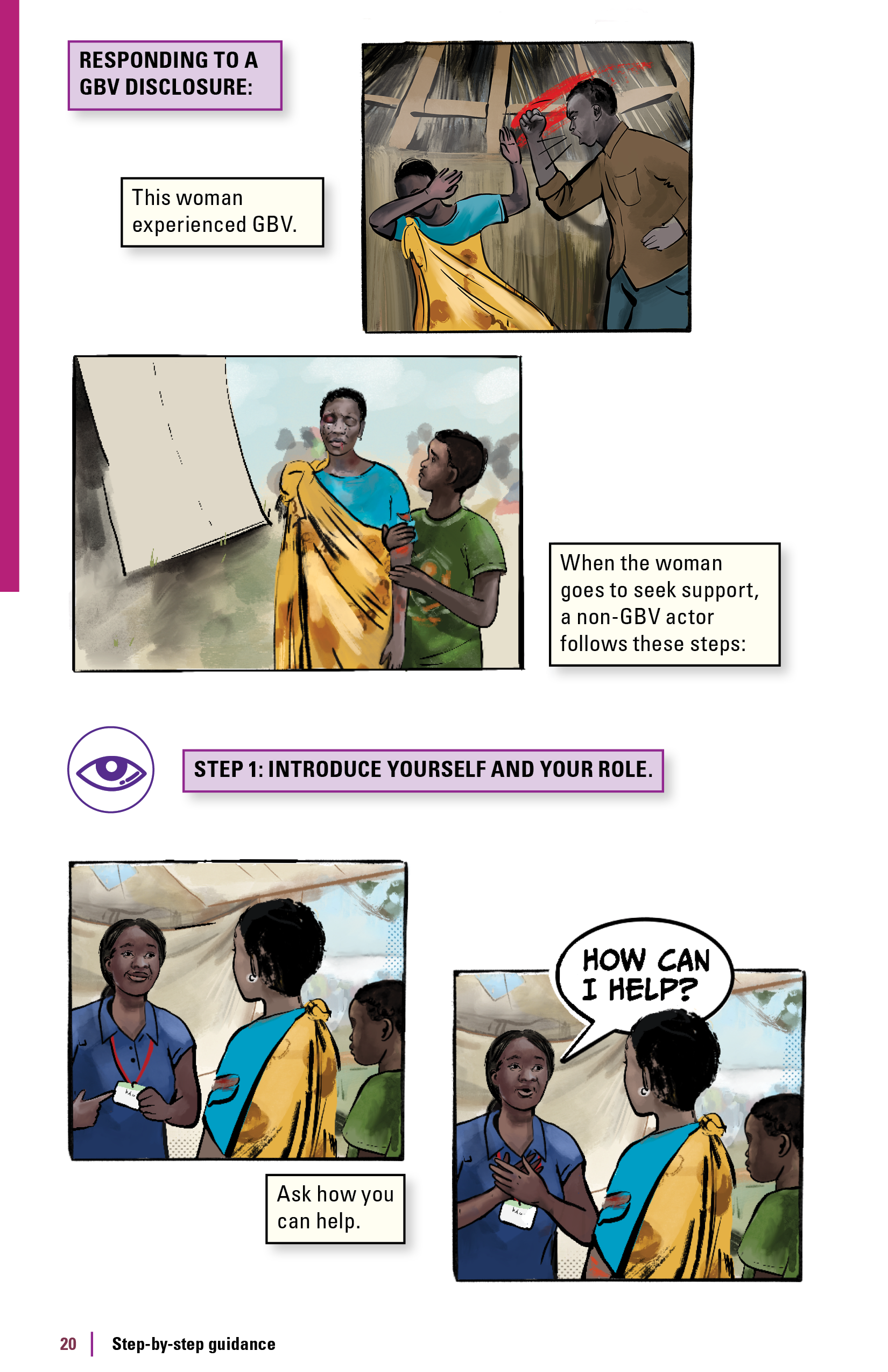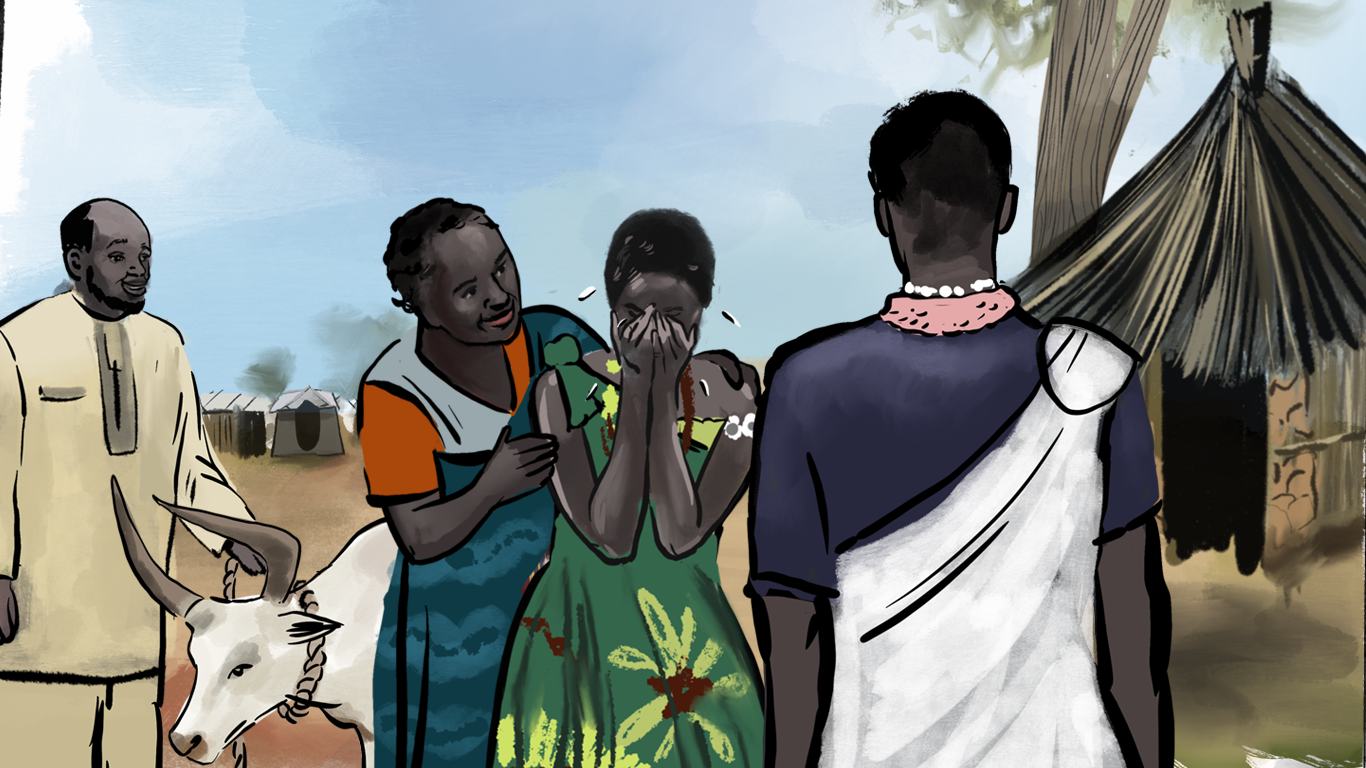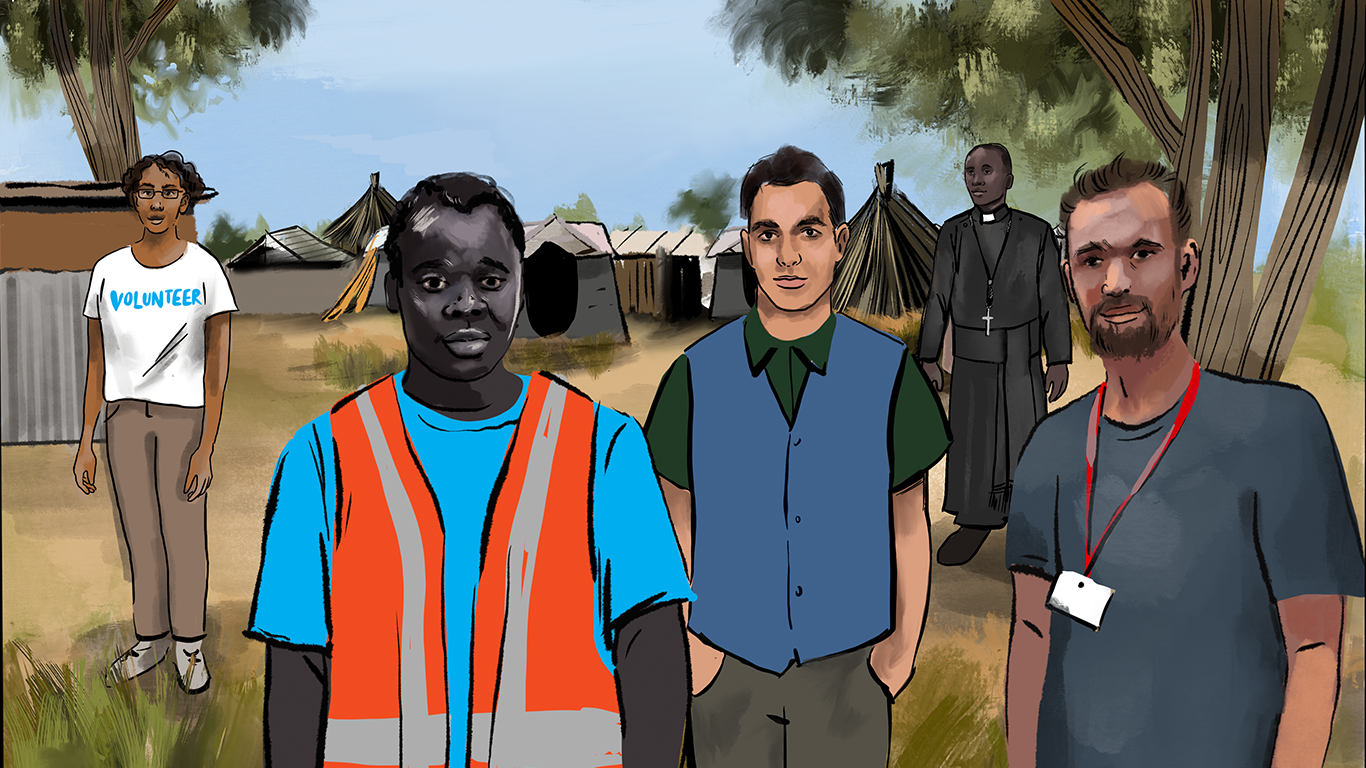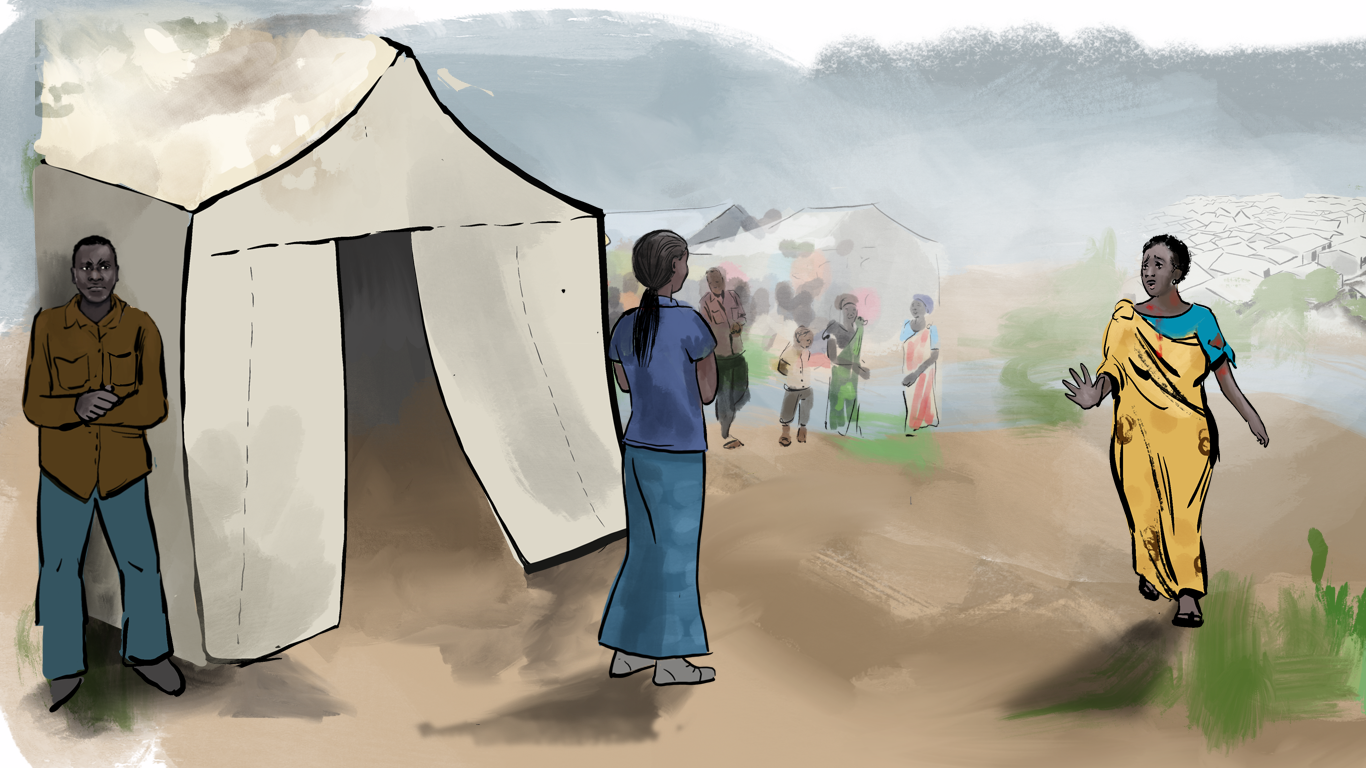How we developed a low- to no-literacy GBV Visual Pocket Guide
Gender-based violence (GBV) is one of the most prevalent forms of violence in South Sudan, and it is especially heightened during times of conflict and crisis. Though evidence on prevalence of GBV in South Sudan is limited, a study conducted in South Sudan by What Works found that about one in three (28%-33%) women and girls had experienced rape, attempted rape, or sexual assault by a non-partner during their lifetime. The same study found that more than 50% of women experienced intimate partner violence in their lifetime.
This violence has destructive implications on communities, and it can lead to increased rates of homicide, suicide, lifelong disability, mental illness and substance abuse, poverty, and social exclusion.
For over 20 years, CARE has been dedicated to supporting survivors of GBV and addressing the root causes of the issue, reaching over 12.5 million people with information and resources.
In South Sudan many of the humanitarian workers, such as sanitation and nutrition workers, may not be able to read or write. To support in building the capacity of South Sudan’s humanitarian response system to safely and appropriately respond to GBV disclosures, CARE partnered with Be the Change Group and a local women’s rights organization in South Sudan, Women Vision, to adapt an existing GBV pocket guide into a low- to no-literacy, visual version for non-GBV trained humanitarian practitioners in the country.
Along with the adapted guide, our adult-learning team led the development of comprehensive training manuals that supported the training of approximately 200 local non-humanitarian GBV actors. Both the pocket guide and the training materials were tested and validated by our team in Unity State.
Through this work, we developed a methodology that will help organizations like CARE in the future—a roadmap to translate complex, text-based information into content that is suitable for low- to no-literacy audiences in other cultural settings. We had the opportunity to test this methodology already, with ongoing work to adapt the guide so it can be used in similar contexts within the countries of Honduras and Mali.
Sector
Services
The change
This guide serves as a foundation for the adaptation of the GBV pocket guide for use in other countries. In addition, it sets a precedent for adapting other tools in areas where literacy rates remain low.
200+
non-traditional humanitarian actors in South Sudan trained on how to respond to GBV disclosures in the region.
Validation and analysis
Once we completed a draft of the low-literacy GBV Visual Pocket Guide, members of our team flew to South Sudan to facilitate a three-day validation workshop with local community members, non-traditional humanitarian actors, and the CARE South Sudan team. The workshop allowed us to validate the cultural accuracy of the illustrations in the visual pocket guide and to understand where changes needed to be made to ensure that the users understood the content.
Our research team then organized and interpreted the data from our in-country validation (photos, recordings, transcripts) to refine the visual pocket guide. Embracing an iterative process allowed us to create a truly functional visual pocket guide that met the needs of low- to no-literacy adult learners.
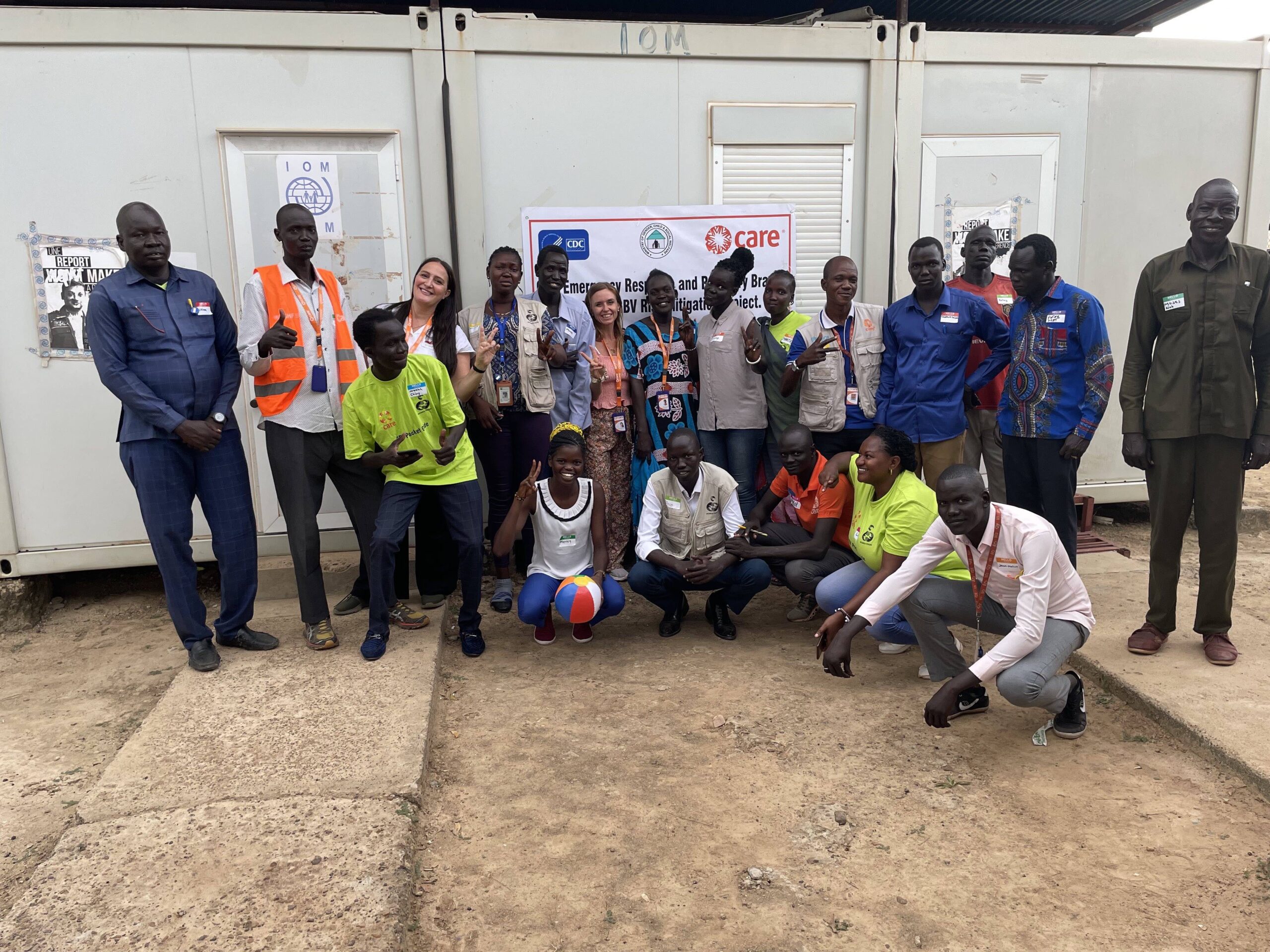
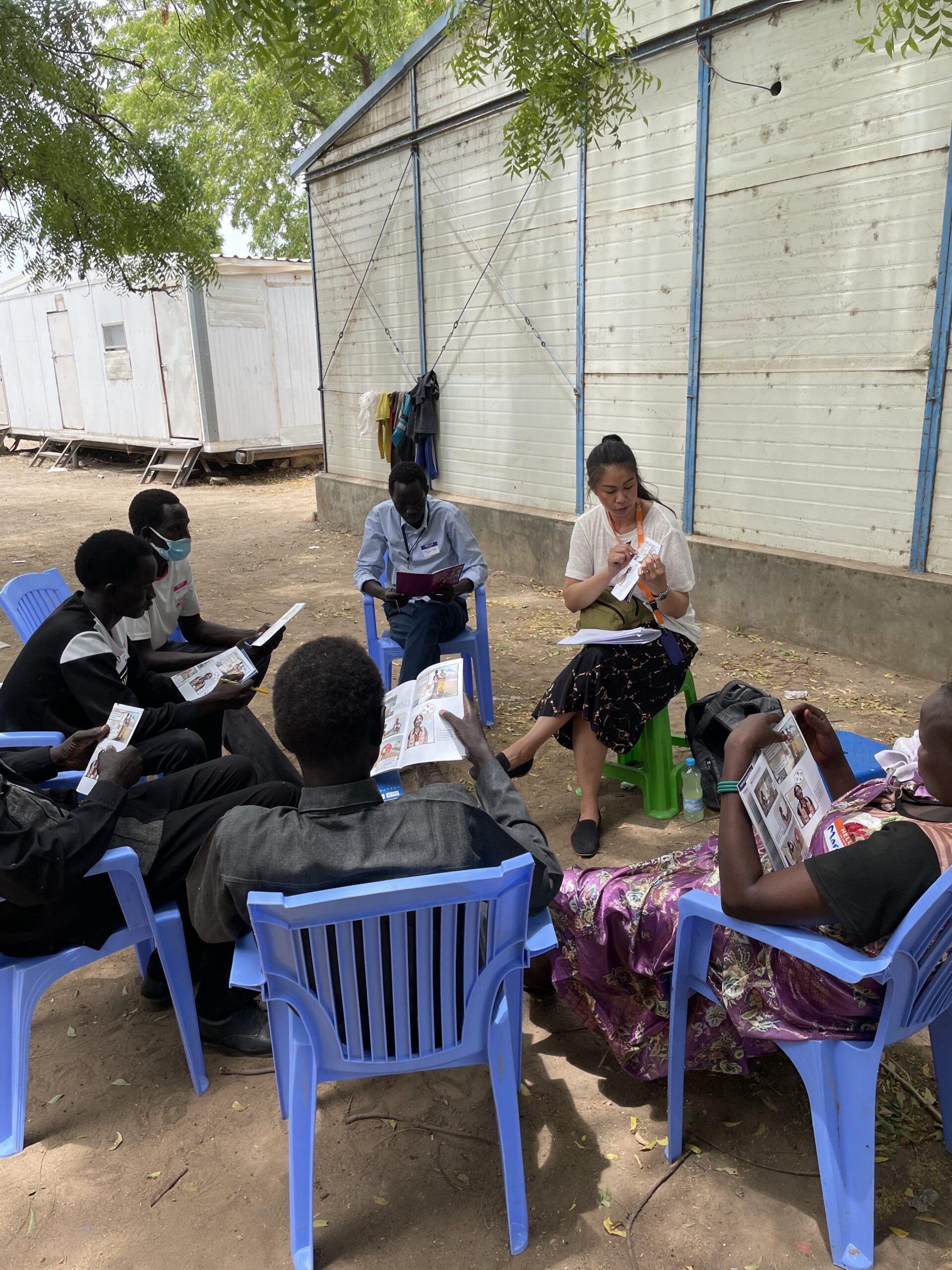
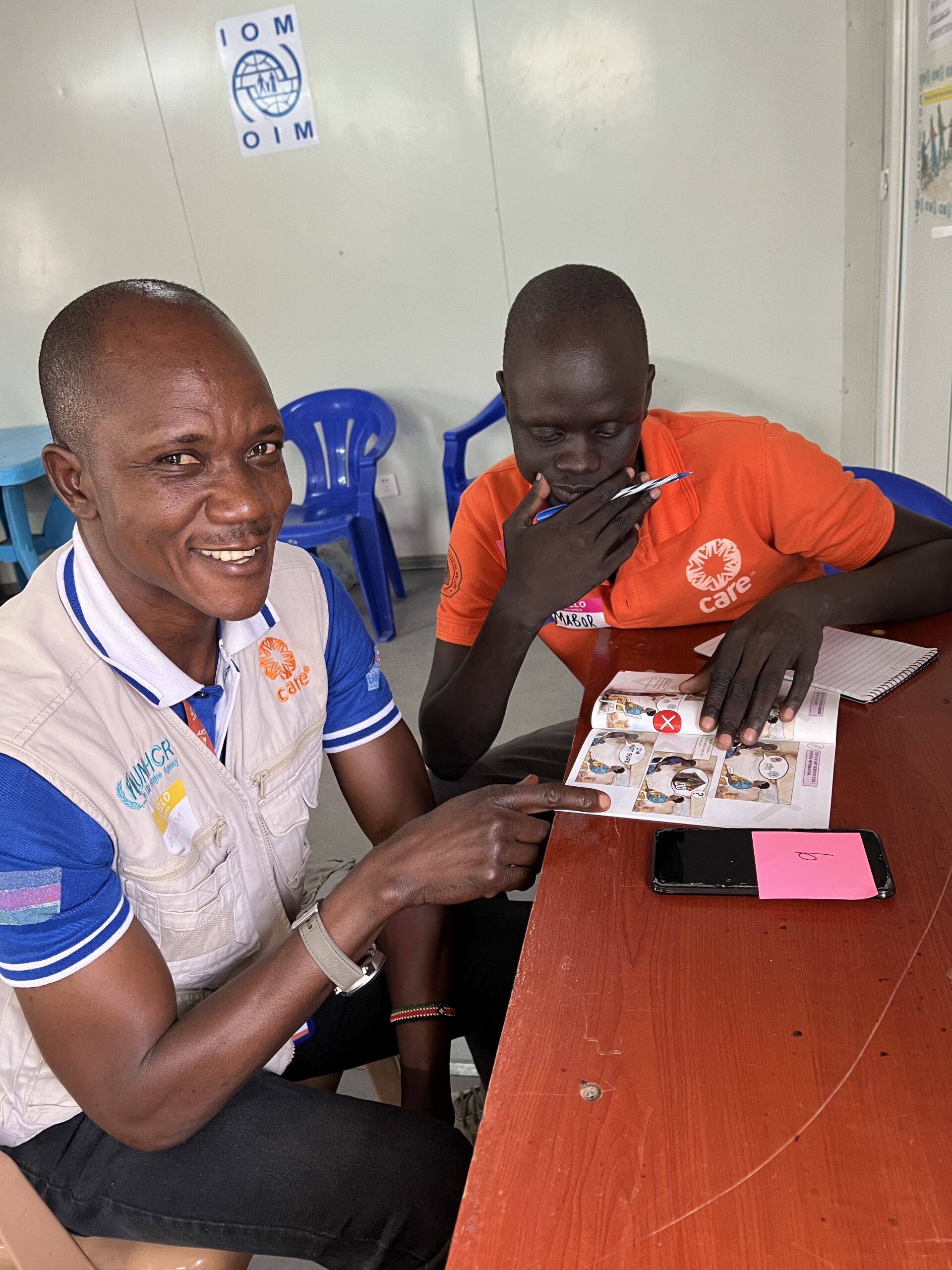
Our solution
The GBV Visual Pocket Guide we created is a practical, user-centred education and communication tool that can be used by low- to no-literacy adult learners doing humanitarian work in South Sudan. Grounded in extensive research and validated through community consultation, it uses culturally accurate and appropriate illustrations and scenarios that will resonate with our end-users.

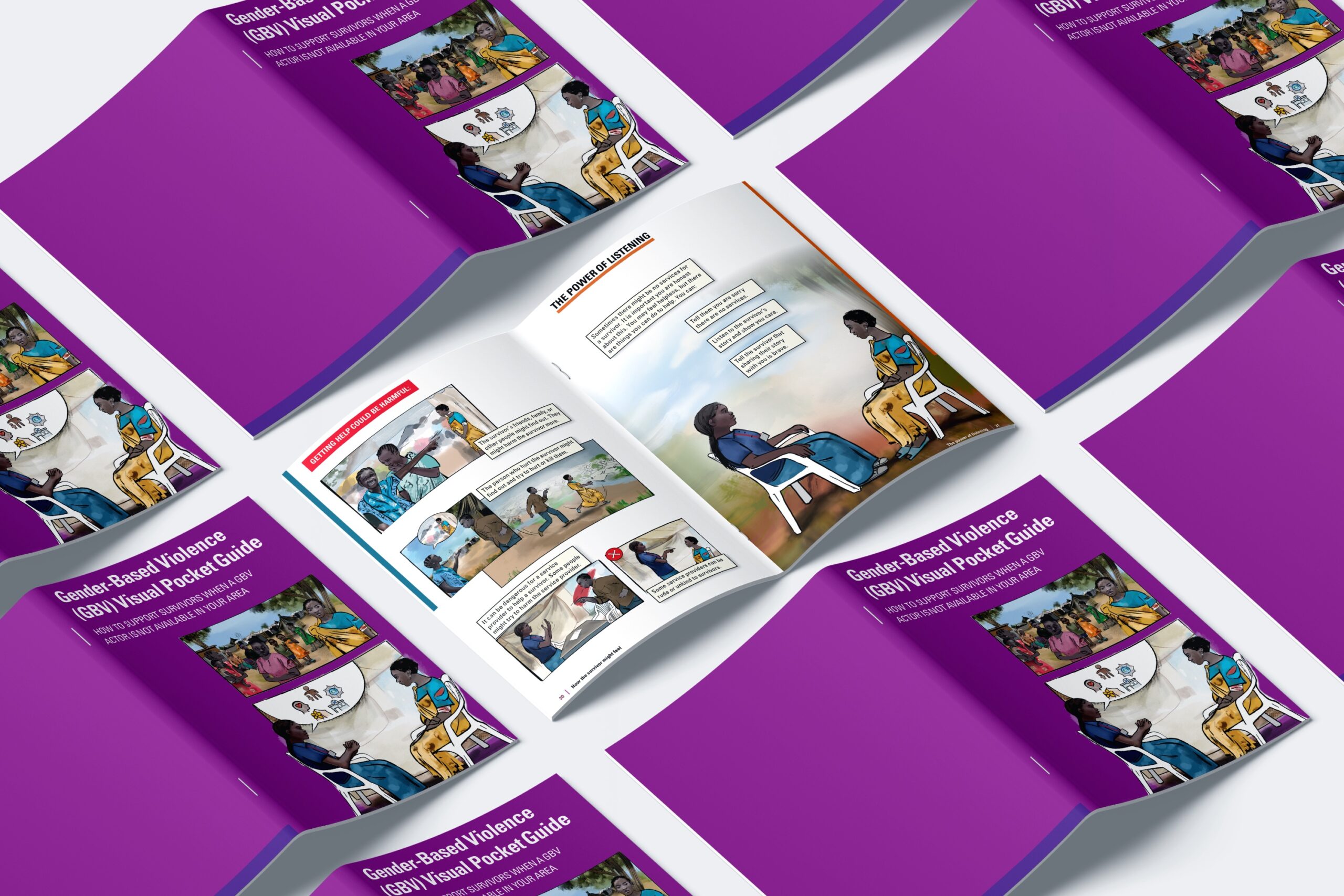
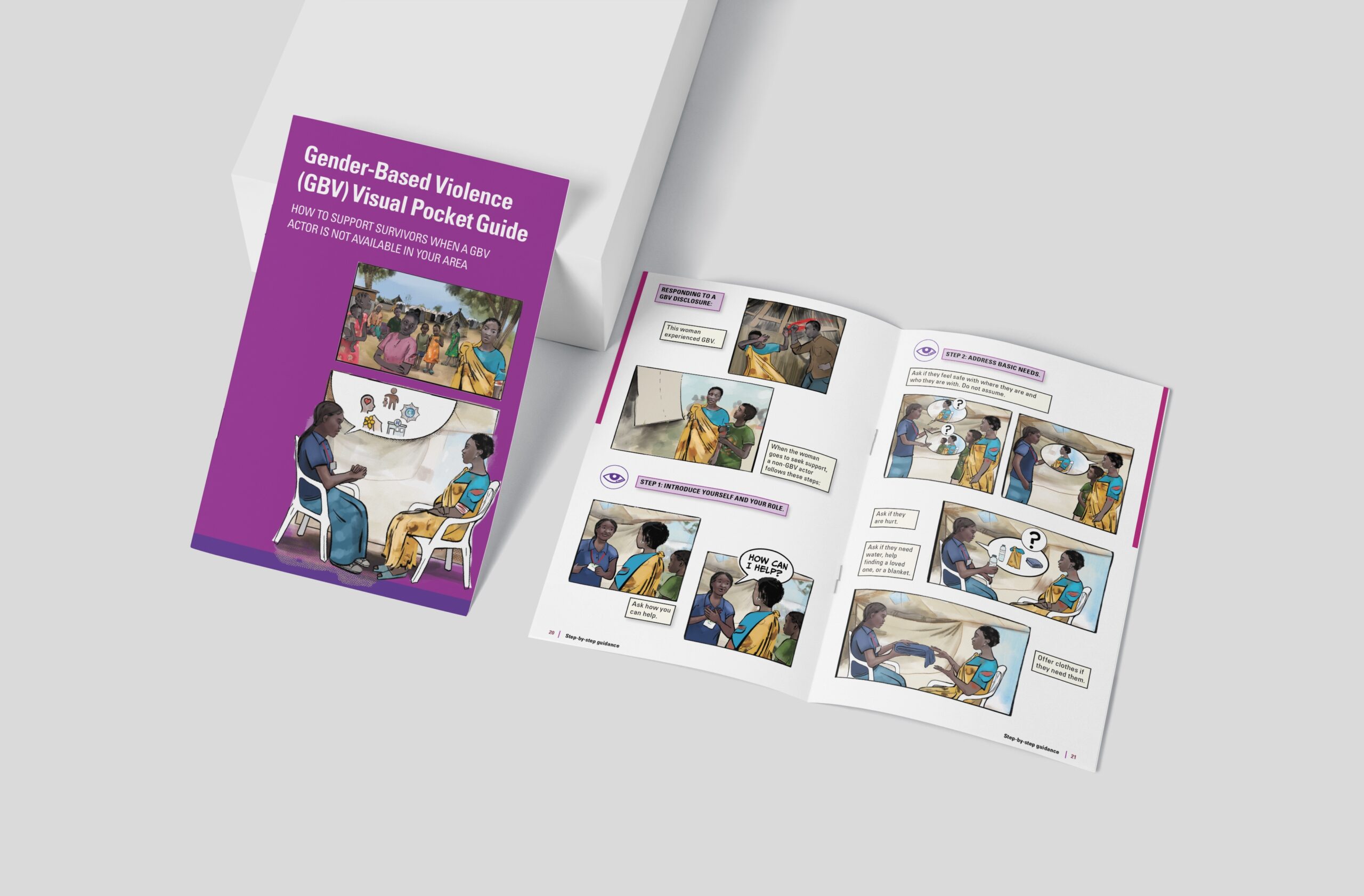
Our solution
Although the GBV Visual Pocket Guide is already tailored to the needs of low- to no-literacy learners, using it properly still requires training. So Be the Change Group led the development of training materials that incorporate learning practices and teaching methods inclusive of low-literacy audiences and provide a range of options to support trainers of varying levels of confidence, knowledge, and ability.

